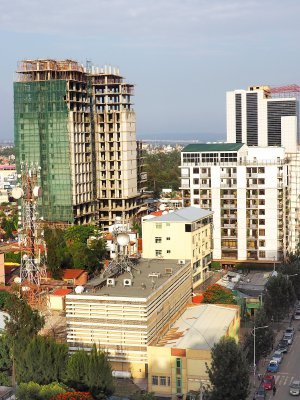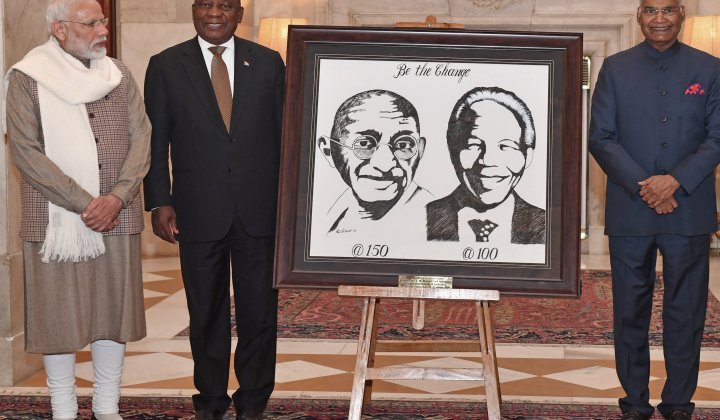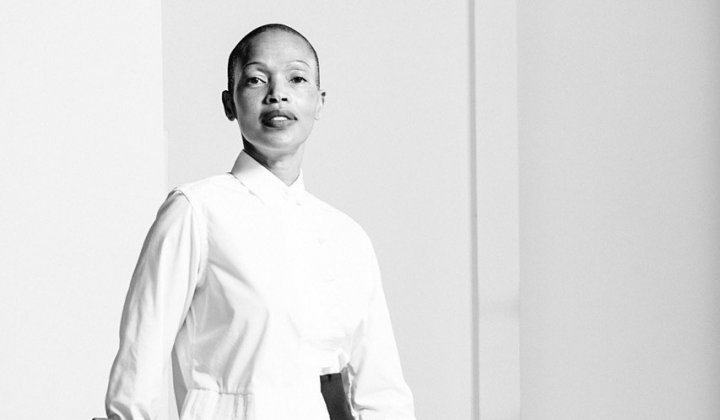In early 2019, Ethiopia’s new leader, Ahmed Abiy, was invited to join the well-heeled and powerful at the annual World Economic Forum (WEF) meeting in Davos for a conversation about his country, an offer not often afforded African leaders at this high-profile international gathering.
The WEF is quick to identify new trends and clearly the hype around Abiy had attracted their attention. At a well-attended live broadcast, the young leader spoke openly about the challenges his country faced, saying that when he took the reins of power, Ethiopia had been at a dangerous tipping point with a leadership characterised by mistrust and disunity.
Local hero
In just a few months of taking over the troubled nation in early 2018, his bold political and economic actions had not only pulled Ethiopia back from the brink, they had made him a local hero. His face appeared on stickers, T-shirts and posters displayed on cars, streetlights and people around Addis Ababa and elsewhere.
Many Ethiopians were emboldened by a new tide of democracy sweeping away decades of autocratic rule, speaking freely in public about the politics of their country, deemed not long before to be off limits.
Abiy’s early wins included ending a month-long state of emergency imposed by the government to curb mounting dissent over his predecessor’s political policies, removing a raft of repressive laws curbing freedom of speech, and persuading members of the political opposition to return home.
He also embarked on a peace mission to neighbouring Eritrea, ending years of hostilities with Ethiopia’s neighbour dating back to the late 1990s over a piece of disputed territory along their mutual border.
He travelled across the country to listen to the grievances of his country, an initiative that has informed many of his actions and policies, and he moved swiftly to address gender imbalances by appointing women to half of all cabinet positions and, later, Ethiopia’s first female president.
...many of the old guard are resisting reform...
Super growth
Ethiopia’s story is remarkable. Despite the country’s turbulent political past, it has managed to achieve some of the highest growth rates in the world. Between 2006/07 and 2016/17, growth averaged 10.3% per year compared to a regional average of 5.4%.
In 2019, Ethiopia is expected to be Africa’s fastest-growing economy with the IMF projecting growth of 9.3%. Analysts attribute its success to strong leadership and the ability to set a vision for the future and stick to it. It has introduced many pro-poor policies in agriculture, health and education, and directs more than 60% of the national budget to this end.
The opening of the political space in this historically autocratic country was unprecedented...
It has not been easy. Thousands of political opponents were killed and tortured during the long and destructive rule of military Marxist leader Mengistu Haile Mariam and his Derg party in the 1970s and 1980s, and his imposition of communist policies almost destroyed the economy.
After Mengistu was driven into exile in Zimbabwe in 1991, the new ruling Ethiopian Peoples’ Revolutionary Democratic Front voted Meles Zenawi in as president in 1991. He, too, was intolerant of free speech and political opposition but he did successfully begin rebuilding the shattered economy, making heavy investments in infrastructure and agriculture.
After his death in 2012, Zenawi was succeeded as prime minister by Hailemariam Desalegn whose rule was a mixed bag. His focus on the establishment of free trade zones, or industrial parks, which were designed to lay the basis of a new industrial strategy, has been a big success. By 2019, five of eleven planned government parks were operational, providing 45 000 new jobs. Six more were due to open in 2020.
However, mounting anti-government protests by Ethiopians seeking greater political freedoms undermined his economic successes, as they had with Zenawi. Hundreds of opponents to his rule died and tens of thousands were detained. He eventually resigned in 2018.
Abiy, who became prime minister in early 2018, was a breath of fresh air. The opening of the political space in this historically autocratic country was unprecedented and widely welcomed by a frustrated, and overwhelmingly youthful, populace - although not everyone was pleased by the dramatic turn of events.
Headwinds
As in Egypt, many of the old guard are resisting reform, finding it hard to move on from decades of government control. Old fault lines have emerged that threaten to derail Abiy’s reformist programme. Abiy himself was nearly assassinated in political unrest just a few months into this rule. He is now facing renewed jostling for power among ethnic groups and even from his Oromo people, who were banned until he took power and who now want their pound of flesh.
Analysts have described mounting security challenges as a predictable outcome of the liberalisation process, as repressed grievances of old bubble to the surface.
Despite the laudable growth rates, all is not rosy on the economic front either. The country is experiencing serious foreign exchange shortages - a legacy of massive infrastructure spending that began with Zenawi and continued with his successor, Hailemariam. New infrastructure includes the railway line from Addis Ababa to the Port of Djibouti, the light railway system in Addis Ababa and power lines to neighbouring countries.
In 2016, debt reached 56.06% of GDP, above the IMF’s suggested benchmark for acceptable developing economy debt of debt-to-GDP of 55%.
Industrial strategy
But Abiy also inherited a country with the potential to thrive, a large population, and one with a successful industrialisation drive already in process. He has prioritised opening this largely state-run economy and removing roadblocks to investment. It is a long process, with Ethiopia ranked at a low 116 out of 130 countries on the World Bank Ease of Doing Business Index in 2018. “Private capital will deliver significant value to Ethiopians and drive our reform agenda,” he said at the outset.
The industrial parks strategy continues to drive growth and development. Ethiopia, like China before it, has focused on the garment and textiles sector with a view to position itself as a top sourcing and manufacturing destination for apparel.
Given high levels of competition, the government has admitted that this is a risky sector to kick-start its industrial ambitions but maintains that producing for export markets is a viable way to build industrial capacity. It has big plans to boost clothing exports to US$30 billion a year from the current US$145 million. Already garments are being produced for some of the world’s biggest fashion brands such as Calvin Klein, H&M and Tommy Hilfiger.
Of the 36 operational factories in the government parks, seven are in textiles, two in shoes and gloves, and the remainder in apparel manufacture.
Another success story is floriculture, which has flourished with strong government support and private sector investment. More than 100 000 jobs have been created from the export of Ethiopian flowers, mostly roses. It is now Africa’s second-largest exporter of flowers after Kenya.
Flying high
State-owned carrier, Ethiopian Airlines, has played a significant role in supporting exports. Its strong global route network is complemented by strategic investments at home to create revenue-generating facilities in, for example, catering, training and aircraft maintenance for the region.
The airline is now Africa’s biggest and most profitable carrier. Its success has undermined that of other carriers such as Kenya Airways, which is battling financial problems from reduced market share, and shown up South Africa Airways’ poor operating model, which has become a victim of state interference and political expedience.
The success of the airline, and the fact that Ethiopia is home to the African Union and all the travel and expenditure that brings with it, have been big drivers of tourism, which grew by 48% in 2018 – the highest growth in the world.
Other advantages in its investor arsenal are duty-free imports of capital equipment, tax exemptions, cheap electricity, and duty-free access to the US market through the African Growth and Opportunity Act. In 2018, it remained East Africa’s top recipient of FDI with US$3.3 billion inflows, much of it in energy and manufacturing.
Opportunity or threat?
The size of the market is both a challenge and an advantage. With more than 100 million people, it offers a large consumer market, but poverty is high and skills are low. Cheap labour has become a competitive advantage as the government tries to create jobs for the estimated 60 million people who are under the age of 24.
The airline is now Africa’s biggest and most profitable carrier.
This market, if left unaddressed, could undermine the bigger project of building sustainable growth. However, critics say the minimum wage is so low that workers will not be able to lift themselves out of the poverty trap.
The government is loosening its grip on certain sectors of the economy that were once closed to foreign investment, including textiles, leather, agro-processing, chemicals, pharmaceuticals and engineering. But the umbilical cord to state ownership is still strong - key sectors such as telecommunications, shipping, hydropower and the national airline will remain under government control, for now.
The fate of the financial services sector, dominated by state banks, is less certain. The government has inched forward, passing a bill that will allow Ethiopians in the diaspora to invest in the sector, but foreign investment is not yet on the cards.
But Abiy’s push for openness may come back to bite him as elections approach in 2020. Rising political tensions and insecurity may worsen and any delay in the poll date could have serious consequences. His reform measures may not yet have the traction they need, given his short time in power, and any reversals could affect investment and growth.
There are no easy fixes for these complex and entrenched problems, which show that even Africa’s strong economic performers are on shaky ground, despite significant successes. But the story so far shows the power of vision and commitment to delivery, even in the most difficult circumstances. Abiy’s proactive leadership and drive for real change even in the face of significant entrenched interests provides lessons for all African governments.







